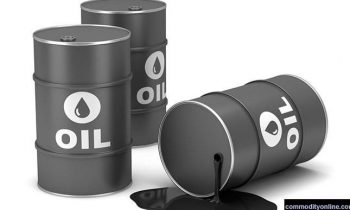
Olusola Bello
Anxiety, fears and uncertainty were the expressions of many oil and gas industry operators who spoke to Business Standards on the practicability of revenue projection from the oil and gas industry in the 2022 budget estimates.
The proposed total expenditure for the coming year is put at N16.39 trillion with a crude oil price benchmark of $57 per barrel and daily oil production estimate of 1.88 million barrels (inclusive of condensates of 300,000 to 400,000 barrels per day).
Oil revenue is projected at N3.16 trillion
The operators worries stem from the fact that multinational oil companies that are the major investors in fossil fuel across the globe are restricting investment and focusing on renewable energy.
The government has so much exuded confidence during the presentation of the 2022 budget proposal to the national assembly and during the sectorial breakdown that with the passage of the Petroleum Industry Act (PIA) investors would throng to Nigeria and begin to put their money down for a number of projects.
Some industry operators are, however, not impressed by this government’s optimism that the passage of PIA would translate into automatic investment in the oil and gas sector and this could increase the inflow of revenue for the government because of the current global development which has renewable energy as its focus.
Some operators said the PIA came too late because investors that would have taken advantage of it have already headed to other locations across the globe that are more investment-friendly. They also pointed out the potential danger inherent in the passage of PIA that could also constrain investors.
As far as some of the stakeholders are concerned, forcing down the throats of communities in Niger Delta three percent host Community Fund as against five percent demanded, is a potential danger, as they are not sure what would be the reactions of the host communities after some time. These and so many other things the investors may consider and hold back their money, they said.
Multinational oil companies such as Shell, ExxonMobil, and Chevron are divesting from onshore assets and because of this, they may not be interested in making further investment.
An industry operator told Business Standards that the recent visit of the president of ExxonMobil was to inform President Muhammadu Buhari of the intention of the company to divest from its onshore assets in the country.
A stakeholder was asked whether the government’s budgetary revenue projection from oil and gas was realistic and he said, “a simple way to respond is to look at the recent visit to President Buhari in Aso Rock Abuja by the President of ExxonMobil Upstream, Liam Mallon.
He basically came to inform FGN of the company’s intention to shrink their investments in Nigeria through the divestment from JV assets. Even though PMB read a written statement wooing Mallon to take advantage of the PIA to increase investment in Nigeria, the discussion sounded paradoxical because – somebody says I am going and another is saying come and spend some money.”
Another operator in his own reaction said: “To be honest, I think 2022 budget would not attain the revenue projections and the budget performance will rely largely on debt. Having said that, a number of events may happen and these include:
1. If the government develops some ‘balls’ and removes power and petroleum subsidies it certainly would accrue a quantum of revenue.
2. If Dangote Refinery and the Port Harcourt Refinery upgrades are completed, there would not only be cost savings, but also potential export revenue.
3. On the upstream side, the world probably was and is going too fast on the energy transition; we are beginning to see oil production gaps due to global lack of investment. This is creating under-supply and firming oil prices. There may be a renewed investment in the oil sector to meet this demand and this could make Nigerian upstream an attractive investment destination again.
Another operator also pointed out some of the challenges the country is currently facing that may make the realization of the revenue projection a tall order.
“We currently produce 1.3 million bpd. Why? We are not even producing to our installed capacity of 2 million bpd. And there is OPEC quota restrictions and poor condition of some production facilities,” the operator noted.
Continuing, he said, “the argument can be, why spend on maintenance when you cannot produce to capacity because of OPEC quota. Who will want to invest even if PIA is great when OPEC quota limits production? I do not share the minister’s optimism in achieving 4 million BPD, although the year is not started.”
One of the operators even said that he does not see reasons why investors should rush to invest in oil and gas as a result of enactment of the PIA
“I think that question should go to the government. They certainly know more than I do.
To my mind I don’t see any reason for investors to rush to invest in oil and gas as a result of the enactment of the PIA. Maybe with time and as the climate changes”




